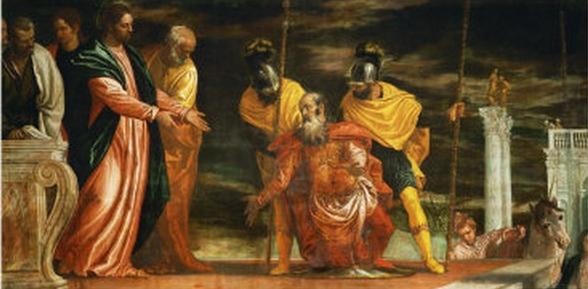
Scripture:
Reflection:
They shall beat their swords into plowshares
and their spears into pruning hooks;
One nation shall not raise the sword against another,
nor shall they train for war again. -Isaiah 2:5
This passage made a powerful visual impression for the people who first heard it; for they saw how swords and spears were made: in the heat of a tremendous fire that melts metal. The sword, a tool of war, undergoes the heat of a forge and is bent round at the end, transforming it into a plow that breaks open the soil, readying it for seed. Likewise, the spear, another instrument of violence, undergoes the melting fire and is formed into a pruning hook for productive work in agriculture. These images of the transformations of the sword and spear have, over the centuries, become expressions of military weapons or technologies being converted for peaceful civilian applications.
As we begin Advent, the prophet Isaiah gives us a powerful vision of turning from violence and towards peace, a message joyfully proclaimed at Christmas to the shepherds: “Glory to God in the highest heaven, and on Earth peace to those on whom his favor rests.” Luke 2:13-14.
We long for peace; we send Christmas cards that say, “Peace on Earth”, and yet peace eludes us, in our own hearts, in our homes, in our communities, and on the world stage.
Around the world, we see people, especially children, suffer the consequences of violence and war: trauma, famine, displacement, and even genocide.
The first candle we lit in the Advent wreath is the “hope” candle; and next Sunday, we will light the “peace” candle. And today’s Gospel story gives us some hope, and some practical tools for building peace. We see Jesus and the Roman Centurion working together for the sake of a servant “suffering dreadfully”. The Gospel does not give details of how Jesus and the Centurion formed a relationship. Given the political and cultural realities of their time, they both probably received criticism and misunderstanding for even speaking with each other.
The Roman Centurion was part of an occupying force that levied heavy taxes on the Jews, and brutally suppressed resistance. According to Jewish belief, Jesus would become ritually impure if he entered the Centurion’s home—he was a Gentile. And yet, Jesus offered to enter the Centurion’s home to cure his servant. And yet, the Centurion’s confidence in Jesus was so strong that he knew it would not be necessary for Jesus to come to his home: “only say the word, and my servant will be healed”. Mt. 8:8
During this Advent, let us pray for the courage to work with others to build the peace of Christ, bravely transcending any barriers that keep us apart.
Patty Gillis is a retired Pastoral Minister. She serves on the Board of Directors at St. Paul of the Cross Passionist Retreat and Conference Center in Detroit, Michigan. Patty is currently a member of the Laudato Si Vision Fulfillment Team and the Passionist Solidarity Network.
